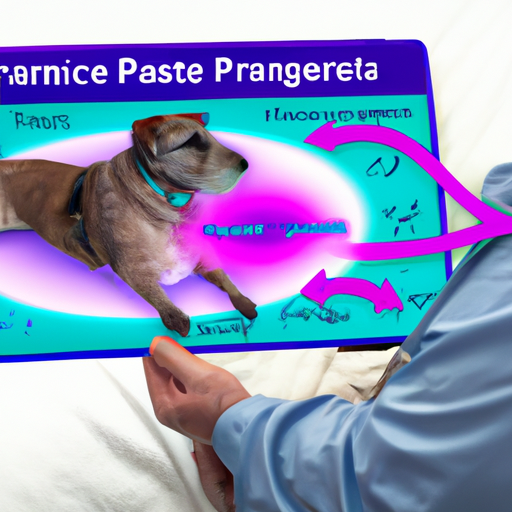Oh, the love you have for your furry friend! And when they fall ill, it’s no less than a storm turning your world upside down. This piece is here to guide you, as a caregiver, through the stormy waters of canine pancreatitis.
Understanding What Pancreatitis is
Pancreatitis is an inflammation of the pancreas – a vital organ that aids digestion and hormone production. Now, it’s a condition not to be taken lightly, but don’t let fear cloud your heart. Knowledge is power, and this is your first step on the road to recovery.
Recognizing the Symptoms
Your dog can’t tell you what’s wrong—that’s where you step in. Look out for these signs of pancreatitis in your dog:
- Abdominal pain
- Loss of appetite
- Vomiting and diarrhea
- Fever
- Lethargy
Remember, these symptoms can also point to other health conditions. So, don’t jump to conclusions. Instead, consult your trusted vet at the earliest.
The Diagnosis Process
The vet will likely perform the following tests to confirm pancreatitis:
- Blood tests
- Ultrasound
- CT scan
Here’s a simple table to help you understand what each test entails:
| Test | Purpose |
|---|---|
| Blood Tests | To measure levels of pancreatic enzymes |
| Ultrasound | To visualize the pancreas and check for inflammation |
| CT Scan | To get a detailed image of the pancreas |
Treatment Options
The treatment aims to relieve the symptoms and manage the underlying cause. This may include:
- Fasting to rest the pancreas
- IV fluids to prevent dehydration
- Pain relief medication
- Antibiotics, if there’s a bacterial infection
Preventing Future Episodes
Prevention is always better than cure. Here are a few tips to prevent pancreatitis in your dog:
- Maintain a healthy diet. Low-fat, high-fiber food is your best bet.
- Regular exercise. Keep your dog active and its weight in check.
- Limit fatty treats. They are a major cause of pancreatitis in dogs.
FAQ
Q: Can pancreatitis be cured?
A: Pancreatitis can be managed with proper treatment and lifestyle changes, but it’s hard to say if it can be completely cured.
Q: How long does it take for a dog to recover from pancreatitis?
A: It depends on the severity of the disease. Some dogs recover in a few days, while others might need weeks.
Q: Can my other dogs catch pancreatitis?
A: No, pancreatitis is not contagious.
Q: Can dogs live a normal life after pancreatitis?
A: Absolutely. With your love, care, and the right treatment, your dog can lead a happy, normal life post pancreatitis.
Let this be your beacon of hope in dark times. You’re not alone in this journey. Together, we can overcome anything—even pancreatitis.



